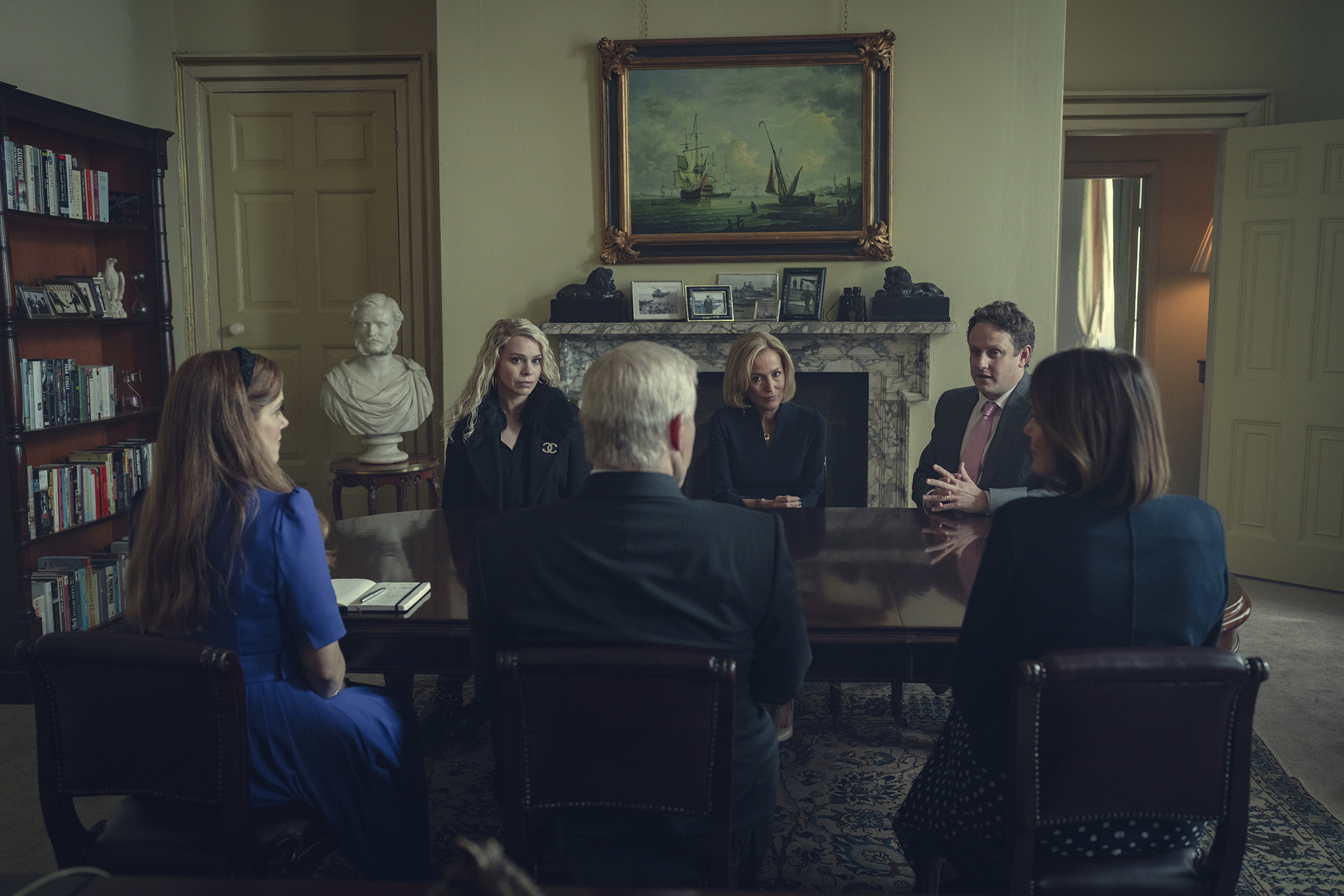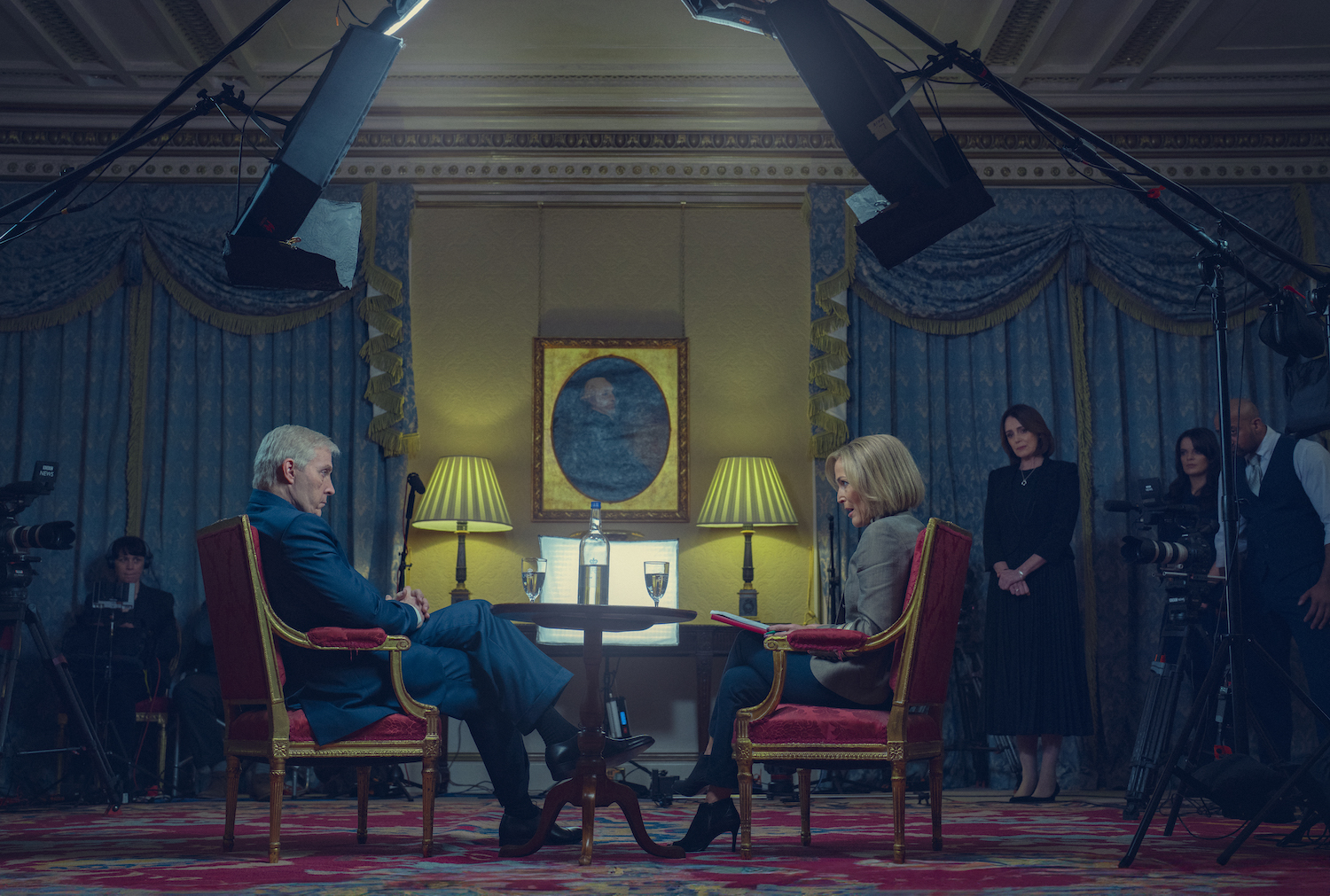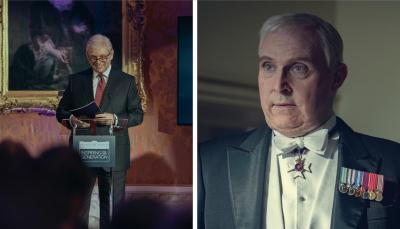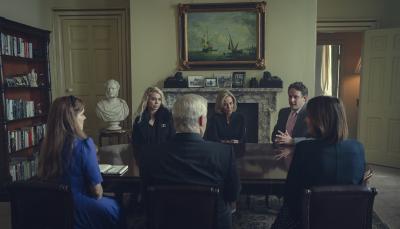Netflix's 'Scoop' is Unenlightening Entertainment
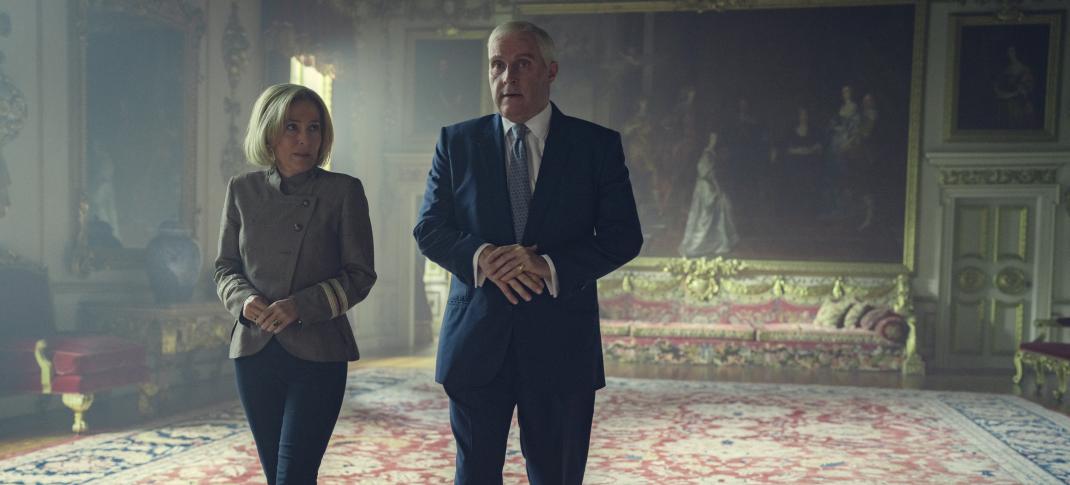
Rufus Sewell and Gillian Anderson in "Scoop"
(Photo: Netflix)
Scoop tries hard to convince you it has something important to say about Newsnight’s Prince Andrew interview. In November 2019, the flagship BBC news and current affairs program interviewed Prince Andrew, the Duke of York, about his well-documented connection to convicted sex offender and alleged mass trafficker of underaged woman Jeffrey Epstein. (By this point, Epstein had avoided prosecution by committing suicide in his cell.)
The Netflix dramatization of the events leading up to and the immediate aftermath of the interview, titled Scoop, is deeply aware of how scandal-hungry and exploitative it might look to be bankrolled less than five years after the interview. As a result, the film works overtime to stress Newsnight’s journalistic rigor; Scoop extols the noble nature of state-supported British journalism and is definitely not a voyeuristic rehash of when we gawped at the royal pedophile! Scoop acknowledges the slight anxiety from a true-crime-eager streaming audience that, you know, this is all a bit crass, and instead of implicating that desire for scandal, insists that it’s a Very Important Film about journalistic practice.
It’s clearly not the case – Scoop is as investigative a creative exercise as a single Tweet and more than once veers into exceedingly poor taste. In terms of post-Spotlight news reporting movies, it’s a couple of notches below She Said and The Post and miles away from the heights of The Insider, Zodiac, or Shattered Glass. It’s an excuse to get celebrated actors and proven Netflix darlings (in this case, Gillian Anderson as interviewer Emily Maitlis and Rufus Sewell as Prince Andrew) to act out all the insane bits from the Newsnight interview, giving a prestige sheen to a laborious and incurious film.
It’s not that Scoop is completely unentertaining – that interview really is a corker, and the moments where we’re shown Newsnight’s process from pitching to airing are compelling to watch – it’s that Scoop has little clue what the point of Scoop should be. If it’s to enjoy a culture-shifting television exposé, just go watch the real thing. If it’s to seriously interrogate the systems that concealed and revealed Andrew’s abuse, how the hell can you do that with a Netflix Original?
Neither Maitlis nor Andrew could be called the protagonists of Scoop; that honor belongs to Sam McAlister (Billie Piper), the producer who landed the interview with the cooperation of Andrew’s top aide Amanda Thirsk (Keeley Hawes). With these characters, Scoop has the strongest claim to being a legitimate journalism film – the pressures of McAlister’s working conditions against the backdrop of extensive BBC job cuts push her to pursue Thirsk with a sincere but firm compassion, the type that Piper has performed ably throughout her career.
Thirsk gets a more even-handed portrayal than she received in the press (Thirsk was thrown under the bus over Andrew’s car crash of an interview, when, in fact, Andrew is very capable of crashing the car himself). Hawes is in her element as a clipped, privately flailing administrator realizing just how restrictive the job of protecting the integrity of the Royal Family is, and Scoop plays her disaffection with Andrew post-interview with a decent amount of grace. McAlister and Thirsk are mirrored characters, and their interplay should offer some actual pathos, but Scoop is too fixated on the shocking interview to find true introspection for these real-life figures.
Both Anderson and Sewell are able performers, but with Andrew’s interview playing out exactly as how it was shot for Newsnight with intermittent reaction shots from Piper and Hawes, you wonder if a theatrical approach akin to Peter Morgan’s Frost/Nixon or James Graham’s Best of Enemies would have revealed more about the interview. When Scoop does come alive, it’s not because of the importance of this moment; it’s because we get to see the process, from both Newsnight and the Royal Family, that went into prepping the interview. But Scoop gets so caught up in the empty lionization of ordinary journalistic practices that the pleasures of seeing them carried out get lost.
Two things can be true at once: the UK’s Conservative Party, who have been in power uninterrupted since 2010, are mostly responsible for the BBC being starved with funding cuts in a push towards privatization, which would be a really bad thing and best avoided in all circumstances. At the same time, the centrist positioning of the BBC’s coverage has led to massive journalistic oversights, and the proven competence of Newsnight’s coverage is not exempt from this. (For reference, please see the BBC’s coverage of the genocide in Gaza or the fact that their chair used to be a massive Tory donor.)
Clearly, the BBC's merits are nuanced, and we don’t want to give the impression that they’re outweighed by the institution’s flaws. But Scoop, a Netflix film capitalizing on the furor that the interview caused rather than the intricate mechanisms that created it, isn’t interested in nuances and probably wouldn’t be able to express them if it tried. As a Netflix traffic generator, it’s first-class; as a film commenting on reality, it’s an empty vessel.
Scoop is streaming on Netflix.

